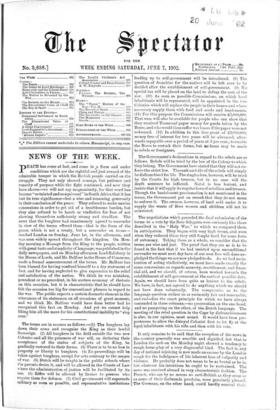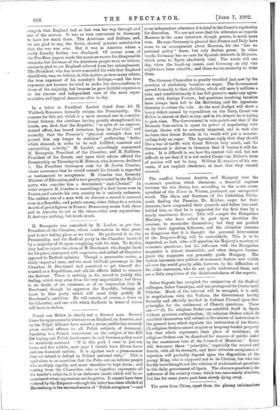It only remains to be said that the reception of
the news in the country generally was sensible and dignified, but that in London the mob on the Monday night showed a tendency to rough horse-play of a very disgraceful kind. The fact is, any day of national rejoicing is now made an excuse by the London rough for the indulgence of his inherent love of vulgarity and violence. He probably does not mean to be as brutal as he is, but whatever his intentions he ought to be restrained. The news was received abroad in very characteristic fashion. The French, who are by no means so anti-British as they seem or as some of their firebrands proclaim, were genuinely pleased. The Germans, on the other hand, could hardly conceal their
chagrin that England had at last won her way through and out of the morass. It was so very convenient to Germany to have her stuck there. The Austrians and Italians, and, we are glad to say, the Swiss, showed genuine satisfaction that the war was over. But it was in America where a really friendly feeling was displayed. Of course some of the Pro-Boer papers made the peace an excuse for disagreeable remarks, but the mass of the American people were, we believe, sincerely glad to see England relieved from her entanglement. The President, who has never concealed his wish that England should win, was, we believe, in this matter, as in so many others, the true exponent of his country's feelings,—and the true exponent, not because he tried to make his views conform to those of the majority, but because he gave faithful expression to the sincere and independent view of the most repre- sentative and typical American alive to-day.







































